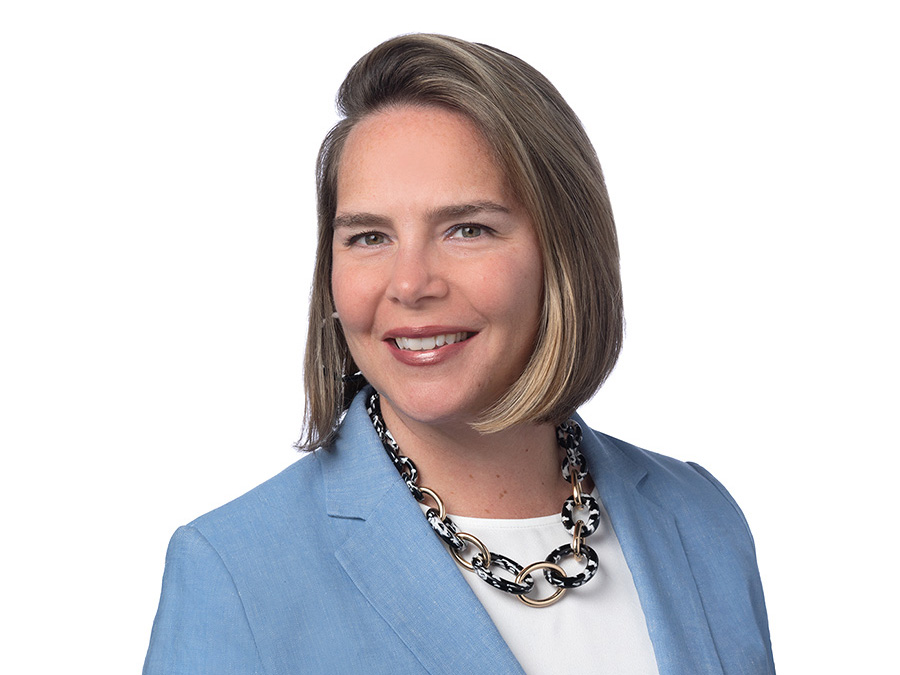CRE Brokerage and the Talent Dilemma

Brokerage firms are grappling with how to maintain and grow their ranks as they wait for transaction flows to return to normal. Brokers, meanwhile, are generally staying put as the direction of the market remains unclear.
Talent recruiting executive note that the layoffs of late 2022 and early 2023 have not repeated at brokerage firms, though other CRE companies, particularly in development, may still be cutting jobs.
“I haven’t seen as many of those happening this year, which is a good thing,” said Allison Weiss, founder of CRE Recruiting, a sector-dedicated firm.

Weiss believes some larger brokerages made cuts in marketing and support roles once transactions slowed. Often, those are brokerage assistants, transaction and marketing coordinators. That has left some mid-level brokers with limited or no support.

But, while there may be some discontent, RCLCO finds employees across all levels are reluctant to leave their current brokerage office because they fear layoffs could occur at a new firm.
RCLCO’s latest national compensation and benefit survey showed the voluntary turnover rate across the industry and participants surveyed was 15 percent in 2022.
“This past year, in 2023, it was nearly a 4 percent decrease year-over-year,” said RCLCO Principal Lucy Bertsch.
READ ALSO: Top Commercial Real Estate Brokerage Firms
That puts less pressure on companies to keep up with competing offers if employees are to look into jumping ship. Nevertheless, firms have been walking a fine line trying to retain their talent and keep them engaged while getting ready to make deals again.

During the peak of COVID-19 and the subsequent Great Resignation period, firms were often overpaying employees because of increased talent competition, reasoned Lisa Flicker, head of the real estate group at executive search firm Jackson Lucas.
“That’s part of why you’re not seeing the job numbers go down,” Flicker said. “I feel the companies don’t want to lose their star performers they fought so hard to get just a year or two ago.”
Some ‘rotating chairs’
There has been some movement in recent months as some brokers left to open their own firms, Weiss noted.
One of the biggest departures came in February, when JLL dismissed Senior Managing Director Bob Knakel, a veteran New York City broker. Knakel soon launched BK Real Estate Advisors.
Other firms are seeing this as an ideal time to grow their ranks. Take Foundry Commercial. The full-service real estate company, which has been growing in the Southeast and Texas, opened an office in Bethesda, Md., in October to service the Washington, D.C., metro, hiring Andrew Genova as managing director and Justin Barker as a vice president.
Last June, Foundry expanded its Atlanta presence by acquiring boutique brokerage firm Southsource and making its founder, Lawrence “L.G.” Gellerstedt, a managing director and Atlanta market leader. This spring, the firm hired Mark Lindenbaum, a former JLL Capital Markets managing director, to lead the Atlanta Land Advisory Group. In March, Foundry hired David Bateman away from CBRE to spearhead the firm’s South Florida brokerage operations.

Mark Rose, CEO of Avison Young, said his firm is always looking for top talent. The company did have layoffs, though Rose declined to disclose the number. He said reductions occurred when the company had grown significantly and needed to adopt the best structure and strategy while dealing with an industry-wide correction. For 2023-2024, Rose and the company looked at non-brokerage headcount strategically, deciding what jobs were needed to deliver client solutions.
In March, the company closed a recapitalization that reduced its corporate debt load by more than half and secured additional capital for future deployment, including hiring and acquisitions. The deal came shortly after the firm acquired the specialty leasing, retail property management, marketing and leasing businesses from Madison Marquette. This was 18 months after it also purchased the office and industrial property management, agency leasing and project management service lines.
“Looking at acquisitions and recruiting, it will continue to be a strategy of expanding our platform, reaching into the product types that work and even the ones that aren’t at the moment. This is an amazing opportunity to collect some of that top talent,” Rose concluded.

More firms expanding
JLL, which currently employs more than 106,000 people with about one-third in the U.S., is growing all layers of the brokerage organization and investing in both strategic and opportunistic markets, noted Jane Curran, JLL head of talent acquisition. The firm also had layoffs, and numbers were not disclosed. Reportedly, the cuts did not affect producer or sales and leasing roles.

SPERRY formerly known as Sperry Commercial Global Affiliates, will be expanding in the U.S. and internationally, according to Global President Mark Hinkins.
The firm uses an affiliate model with traditional brokerage offices that are independently owned and operated. Hinkins noted the format provides owners independence as well as access to the SPERRY brand and full-service solutions. Hinkins said the affiliate platform helps SPERRY and the individual brokerages retain talent because it is built around entrepreneurial spirit.
“There’s a certain type of broker who has a career goal of becoming a partner and that’s not possible at a lot of these publicly traded firms,” Weiss observed.

Attracting, retaining employees
Brokererage leaders agree that education, coaching and training are key to retaining talent.

“We know that our employees are more likely to stay when we invest in their career growth and provide them with the skills they need to advance,” said Holly Tyson, Cushman & Wakefield Chief People Officer.
Providing an inclusive and purpose-driven culture, where everyone feels valued and heard, is another best practice for cultivating a sense of belonging and longer tenures. What’s more, the company’s mission, vision and values need to be clear, helping people see how their work contributes to overall goals, Tyson continued.
While there have been some efforts to de-emphasize diversity, equity and inclusion goals recently, it’s definitely not out of favor amongst CRE firms and employees, said RCLCO Managing Director Ellen Klasson. “All our clients are very keen on hiring diverse workforces and people are trying everything they can do to do so,” she said.
Larger companies are also integrating DEI metrics and goals into the compensation side, including bonuses for tapping into more underrepresented populations for internships and jobs, and holding executives and senior leadership accountable, Bertsch observed.

JLL has programs to empower diverse college students including Project Destined—a nine-week internship that provides financial literacy, entrepreneurship and real estate training to diverse students and has resulted in multiple hires—and the HBCU Business Deans Roundtable. The firm also has an investment fund for entry-level compensation that supplements commission-based salary models, Curran noted.
Meanwhile, Cushman & Wakefield reaches out to historically underrepresented talent in diverse communities virtually and in person, often through partnerships developed with institutions such as trade schools and local and state agencies.
“Relationships within our communities are key to building our brand as an employer of choice to diverse candidates,” Tyson said. “Events such as the 50strong networking opportunity to connect with military and veteran populations, Turnaround Houston Job and Readiness Fair, and our virtual global University Partner DE&I Panel Series are a few examples from the high volume of events we both host and participate in.”

Avison Young made diversity and inclusion a priority long before it became a buzzword, according to Rose. He was the first CEO to sign on to the CREW Network’s CRE Pledge for Action to increase workforce diversity in September 2021. In April, Avison Young named three women to the new five-member board of directors.
Rose mentioned it’s important to cast the net wider and offer internships and reach candidates from underrepresented groups, including indigenous people in Canada, people who aren’t in universities and those attending schools they may not have recruited from in the past.
Weiss of CRE Recruiting added that she expected neurodiversity to also become an important part of DEI hiring discussions at CRE firms. As many as 20 percent of the population may be neurodivergent in some way, including those with autism, dyslexia or ADHD.
Read the June 2024 issue of CPE.





